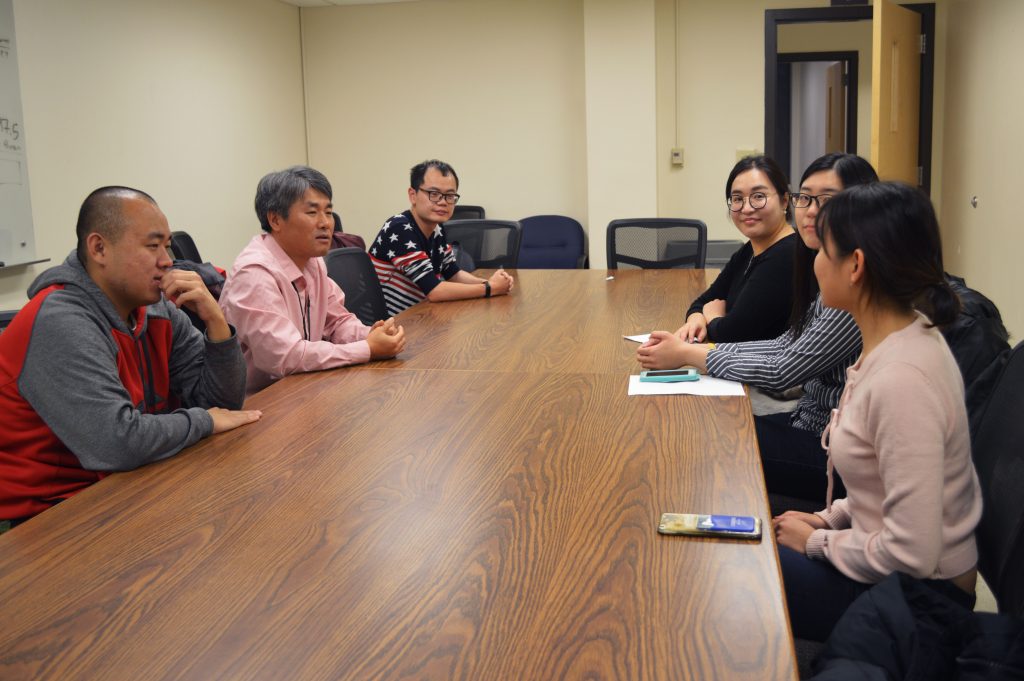
When Tianchang Gao first came to Binghamton University, she didn’t know a single student, nor much of the language spoken by her peers and professors.
“Together,” a support group that meets weekly, is meant to help international students adjust to their new academic landscape.
“At first, like at the beginning of the semester, it was a little frustrating, because language is a little bit of a barrier for me,” Gao said. “I’m getting used to the whole life here.”
Gao, a junior majoring in English, is one of 16 Chinese students at BU who are part of the Beijing International Studies University international exchange program. Students in the program complete one academic year in China and three at a foreign university.
The Beijing International Studies University program is only one of many exchange programs that bring students from around the world to the University, each bringing their own language. The international undergraduate and graduate student population has steadily grown over the last few years, from 2,161 enrolled students combined in fall 2011 to 2,768 in fall 2016.
Sangmoon Kim, a counselor in the University Counseling Center who founded and facilitates the support group, said these students face unique challenges in addition to the challenges all college students face. Some come with only a preliminary understanding of U.S. culture or the English language, and many have trouble finding their fit in University social life and academic success.
“My hope was to provide a space for international students to get together and to meet other fellow international students,” Kim said. “With the language barrier, it’s very difficult for international students to make friends in the United States, so they often kind of feel lonely.”
Kim established the group in 2012. Attendance often ranges from three to five students, with many returning for more meetings, Kim said.
International students at the University are required to submit English-proficiency exam scores, including the Test of English as a Foreign Language (TOEFL). Average scores of undergraduate applicants range from 83 to 90, varying between schools.
Won Lee, a sophomore from South Korea majoring in economics, attended the group meeting on Nov. 28. Although she scored over 100 on the TOEFL exam, she said she still has trouble keeping up with her lecture courses. Lee spends her classes looking through her dictionary for translations, which she said takes away from the time spent learning.
“Every time I say something, I really stumble and have a hard time expressing my ideas,” Lee said. “It’s really hard to speak out in class and ask a question or raise an issue, so I’m afraid I can’t get an A because I didn’t participate enough.”
The language barrier often discourages international students from registering for discussion-based courses. Kim said services the University offers to address academic obstacles are rarely used, in part because of the language barrier.
“Maybe they are afraid of using the service because of concern of not communicating clearly or some kind of fear of public speaking, or speaking to the University staff,” Kim said.
Ji Hyun Lim, ’16, an intern at the University Counseling Center who is originally from South Korea, assisted Kim in facilitating the group. Lim also researches the mental health of international students facing language barriers.
Lim found that many international students don’t want to seek counseling because of challenges in expressing their emotions, and meeting with counselors who speak in their primary languages may alleviate that problem.
“Together” meets every Tuesday at 3:30 p.m. in University Union Room 124.


